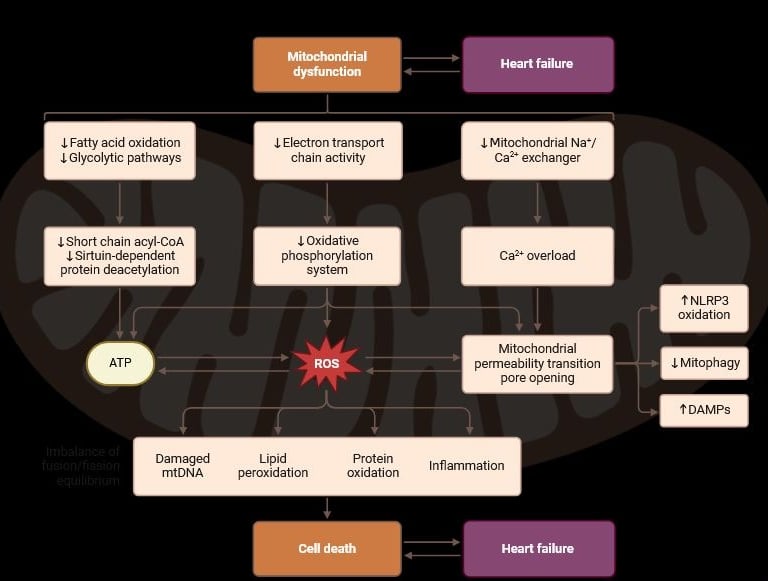HEART DISEASE & STROKE RISK




Telehealth Services Expansion
Value-Based Insurance Design (VBID)
Social Determinants of Health Integration
Predictive Analytics for Tailored Interventions
Public-Private Partnerships (PPPs)
AI-Powered Population Risk Stratification
Wearable Health Monitoring Devices
Mobile HealthMobile Health (mHealth) Apps with Gamification
Community Health Kiosks
Blockchain for Secure Data Sharing
Research Program: To Reduce Heart Attack & Stroke : Age Group: 40-70


Mechanisms of Heart Failure Linked to Mitochondrial Dysfunction
Mitochondrial dysfunction is a critical factor in the development of heart failure. In heart cells, impaired mitochondria lead to reduced ATP production, which diminishes the energy available for cardiac muscle contractions. This energy deficit is accompanied by an increase in reactive oxygen species (ROS), causing oxidative stress and damage to cellular components. Additionally, mitochondrial dysfunction can disrupt calcium handling within heart cells, further impairing cardiac function. These combined effects contribute to the weakening of the heart muscle and the progression of heart failure. Understanding these mechanisms highlights potential therapeutic targets to mitigate mitochondrial dysfunction and improve cardiac health.
